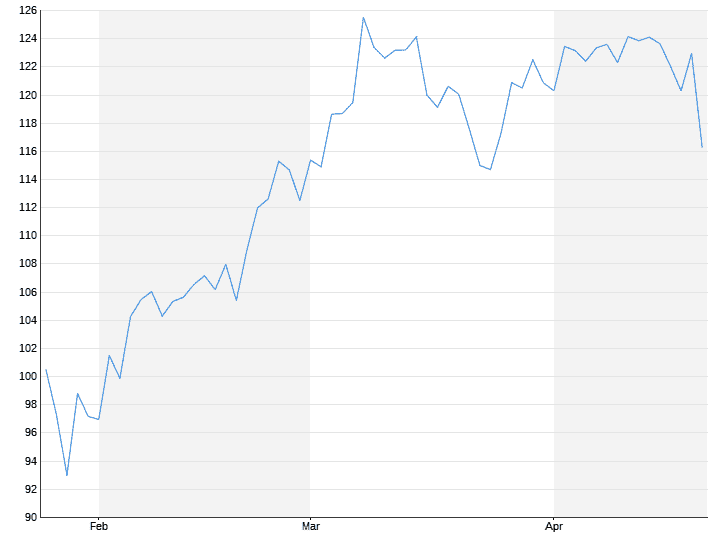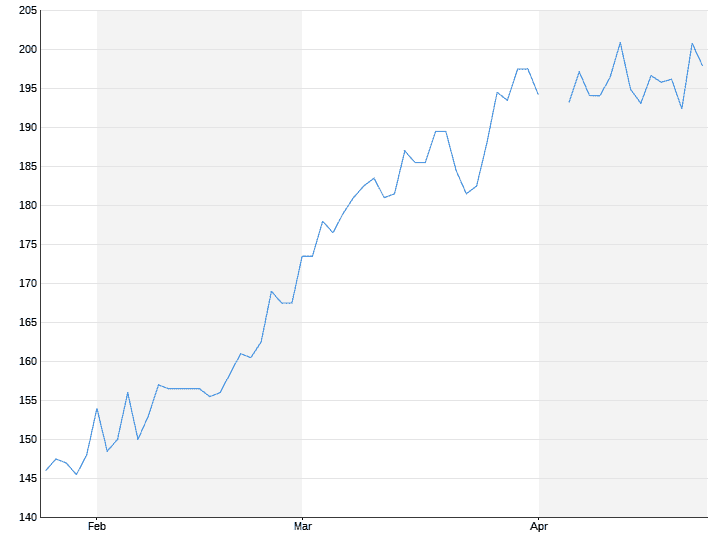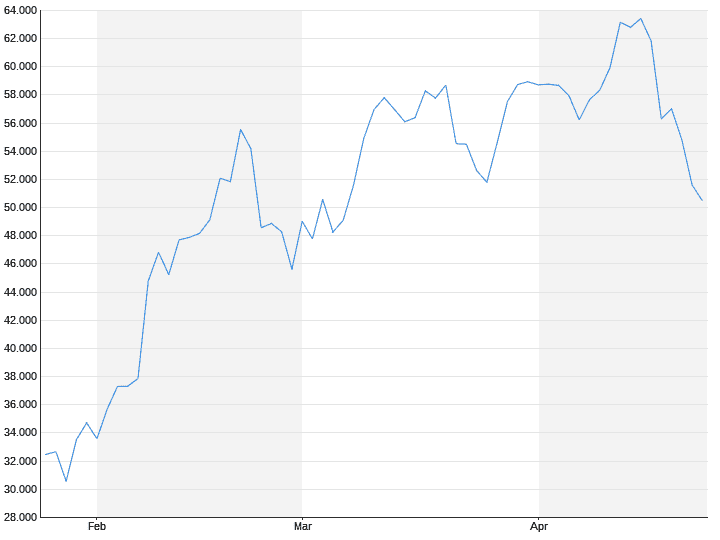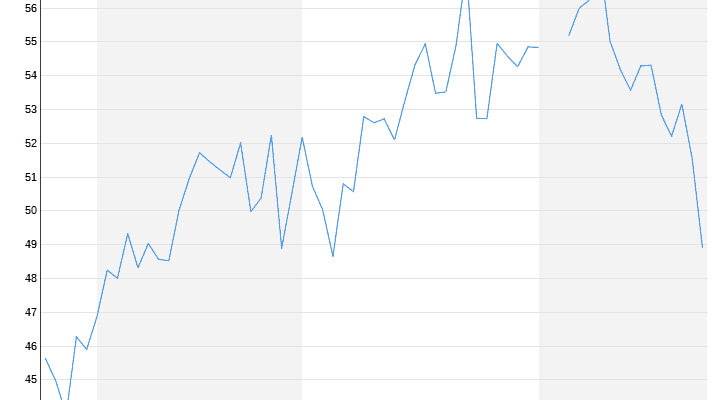Friday 23 April 2021
Cryptocurrencies on the downside
Wall Street is taking the tax shock away
Biden government plans to tax wealthy speculators higher scare investors. But the recovery of the US economy is progressing so rapidly that Wall Street forgets its worries again. Only the crypto currencies are coming under a lot of pressure.
Robust economic data has pushed the S&P 500 to a peak. After the tax increases planned by US President Joe Biden had caused losses on Thursday, the optimists have now taken the helm again. At the end of the week, investors increasingly counted on the positive impulses that the investments in the US infrastructure associated with the economic stimulus programs should bring. In general, the continued loose monetary policy is supporting share prices. The market breadth S&P 500 closed 1.09 percent higher at 4180.1 points. His record is now a good 4194 points. The leading index Dow Jones Industrial increased by 0.67 percent to 34,043.49 points. On a weekly basis, however, this results in a minus of 0.46 percent. The technology-heavy and particularly economically sensitive Nasdaq 100 rose by 1.30 percent to 13,941.44 points.
The index values for April determined by the research company IHS Markit rose for the services and industrial sectors. The data suggests a robust recovery in the world’s largest economy. In addition, new home sales rose sharply in the US in March, recovering from the effects of a severe onset of winter.
Intel weakest in the Dow
On the stock side, people looked up Intel. The papers of the chip company slipped by more than five percent and were by far the weakest value in the Dow. Decreased sales in the data center business and a sharp decline in gross profit margins as a signal of a loss of market share had spoiled investors. Meanwhile, investors courageously took hold of other chip manufacturers. This is how the papers of Xilinx and AMD Profits of around five percent each. In general, the industry benefits from global semiconductor bottlenecks, which, among other things, make car manufacturers difficult.

American Express Although the profit had increased significantly at the beginning of the year, sales had fallen significantly. The credit card company also suffered from the fact that the corona pandemic paralyzed international travel, which is why lucrative hotel or flight bookings, which are often paid for with credit cards, were no longer available. American Express papers lost around two percent. But bank stocks were in demand. So won JPMorgan 1.9 percent and Goldman Sachs at the top of the Dow 2.6 percent. The rating agency Fitch is now more optimistic about the creditworthiness of the two financial institutions and has now described the outlook as “stable”. Among the biggest losers in the S&P 500 fell Honeywell by around two percent. The conglomerate had disappointed with its profit forecast for this year.

For the photo app Snapchat It pays to have a well-functioning app for Android smartphones. The number of daily active users increased significantly in the past quarter. For the first time, more than half of the phone users accessed Snapchat using the Google system, as the operating company Snap announced. Snap’s share certificates closed almost seven and a half percent higher after strong fluctuations.
Cryptocurrencies before price correction
The reaction to Biden’s plans for cryptocurrencies was more drastic than on the stock market. Bitcoin fell eight percent to $ 47,460 at its peak before narrowing its losses to around three percent. “This could be the beginning of a major correction,” said market analyst Milan Cutkovic of brokerage firm Axi.

The second most important cyber motto Ethereum even collapsed by more than twelve percent to $ 2108. On Wall Street, stocks from the crypto sector such as Riot Blockchain and Marathon Digital also came under pressure at times. “I firmly believe that the regulation and taxation of developed countries remains the Achilles’ heel of the crypto markets,” said Jeffrey Halley, a market analyst at trading house Oanda.
.
